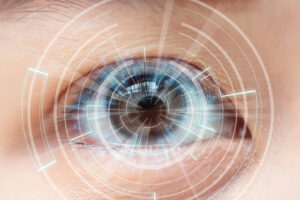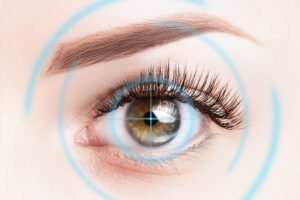
One of the most common deterrents for LASIK eye surgery is the fear of LASIK eye surgery pain. If the procedure was painful, certainly fewer people would elect for the surgery, right? It seems only reasonable that if 20 million patients are undergoing LASIK, the pain must not be great. Yet, the fear persists.
There is a usual anxiety around the blade or laser used during the refractive surgery. Our eyes are sensitive- think back to the wild discomfort you feel getting a bit of soap or a speck of dust in your eyes. The other parts of the body do not react the same way. It’s only natural that we are hesitant to let a medical instrument near our eye.
Let’s get to the bottom of the LASIK pain mystery.
Does LASIK hurt? The answer is no with the slightest follow-up of a ‘but’. Neither the surgery nor post LASIK care is painful, but patients can experience mild discomfort. There is a big difference between these two sensations, pain and discomfort, and it’s important to note that the lesser of the two: discomfort.
Discomfort is associated with laser eye surgery post surgery care in the following ways:
- Temporary itching sensation several hours after operation
- General temporary discomfort several hours after operation
- Blurry vision immediately following procedure
- Haziness immediately following procedure
Dry eyes are the worst symptom patients experience. The physician will prescribe eye drops and over the counter lubricating drops, but if the drops are not taken as suggested, the dryness can get extremely uncomfortable. The discomfort can last for several weeks as the cornea heals. Patients with pre-existing dry eyes are often turned down from the procedure to avoid severe pain in LASIK post op care.
Dry eye symptoms include:
- Sandy, gritty feeling in the eyes
- Burning sensation
- Foreign body sensation, like something is in your eye
- Sensitivity to light
- Pain in the eyes (occasionally)
- Heavy feeling of the eyes
Why are the eyes dry post-surgery?
LASIK creates a corneal flap during the procedure. It is possible that the flap disrupts corneal nerves that are in communication with the tear glands. If the nerves cannot effectively communicate to the tear glands that lubrication is necessary, the flow of tears slows and the eyes become dry.
How long do dry eyes last?
Dry eyes after LASIK last only a few weeks, or as long as it takes the cornea to heal. During the healing process, the nerve endings are able to regenerate, communication returns to normal between the nerves and tear glands, and the eyes become naturally lubricated once again.
Even with these post care symptoms, remember that the body is only experiencing discomfort as the eyes heal to grant you perfect vision. If you cannot distinguish the difference between pain and discomfort or you feel certain that you are experiencing pain, reach out to your physician immediately. There should not be any real pain following your LASIK procedure!
If LASIK does not hurt, what sensations will I feel?
Before the procedure, patients receive numbing eye drops to eliminate the possibility of pain or feeling during the procedure, but there are some sensations observed, including:
- Adjustment to of blinking as eyes are held open, like putting contacts in
- Awkward pressure or suction feeling as physician creates corneal flap
The mystery of wondering, “does LASIK eye surgery hurt?” is solved. Expect no pain as you finalize your plans with Diamond Vision to regain your eye sight and reacquaint your days with the convenience of being glasses and contacts free. If you need LASIK eye surgery in Atlanta, contact our clinic.
Contact Us
If you have more questions about LASIK procedures, get in touch with us.
Related Blogs

Timing is Everything: When to Consider LASIK After Nursing for Optimal Results
Timing is everything when considering LASIK eye surgery after nursing, and understanding the optimal period for this procedure is vital for both mother and baby.

Cataract Surgery: Restoring Clarity and Confidence
Cataract surgery is a transformative procedure that offers a new lease on clear vision and renewed confidence. As cataracts cloud the eye’s lens, causing blurred

Intralase LASIK Explained: What to Expect Before, During, and After the Procedure
Intralase LASIK is a cutting-edge procedure that offers a safe, effective, and precise way to enhance vision compared to traditional LASIK methods. Understanding what to
